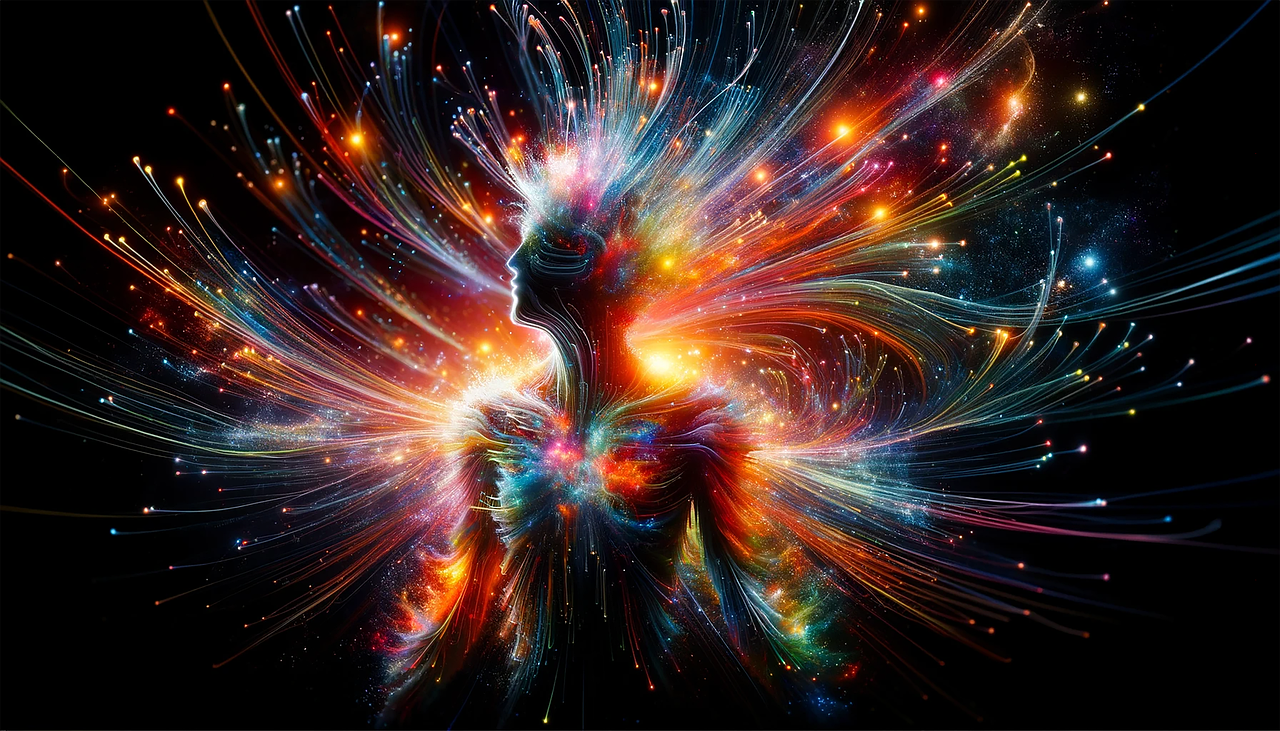 Submitted by Distant Healer on
Submitted by Distant Healer on

Image by dlsd cgl from Pixabay
We know several things about the human aura. It does not bend light, nor does it slow time. It doesn’t change the strength of constant magnetic or electric fields. But what it DOES do is alter how easily certain forms of oscillating energy propagate through space.
For example, Kirlian photography passes high voltage and high frequency electricity through an object… the brighter and larger the sparks coming off the object and recorded onto grounded photographic film, the stronger the aura of the object. That is because electricity takes the path of least resistance (or impedance in this case) and the aura changes the impedance of space itself along its filamentary substructures, allowing oscillating high voltage electricity to follow those channels and impress a corresponding image upon the film.
In another example, the Life Energy-Field Meter, based on Wilhelm Reich’s orgone detector, uses a vacuum tube with alternating current flowing between the electrodes in the tube. The energy extends outside the tube and is called “displacement current” rather than “electric current” because it does not involve transfer of electrons. In the presence of an aura, the quantity of displacement current increases which registers on the Life Energy Meter as a read-out of the aura field strength.
Displacement Current
The displacement current is a longitudinal electrogravitational wave. It is analogous to energy passing through a slinky that is shoved at one end; a compressive ripple travels through to the other end. This is how a capacitor transmits energy, via displacement current. So displacement current is energy transfered in the form of oscillating gravity waves.
Mainstream science says the displacement current comes from the electric field of one electrode changing into a magnetic field in between that induces an electric potential on the other electrode — but this isn’t exclusively true because if the electrodes were one sphere inside another sphere (as in a spherical capacitor) all magnetic fields would cancel but energy is still transmitted. See my paper at the Scalar Physics Research Center for the mathematical details.
The displacement current is really just a longitudinal electromagnetic wave — not in the sense of electric and magnetic fields traveling longitudinally (that is impossible just as science says) but rather the underlying magnetic vector potential component oscillating in the direction of travel. This also shows why the aura does not bend or discolor ordinary light, since it only affects longitudinal waves and not transverse waves. Ordinary electromagnetic waves have both a magnetic and electric field component that oscillate transversely like a rope being shaken rather than a slinky being compressed. Point is that the aura seems to amplify the transmission of longitudinal or gravitational waves.
Now, displacement current only exists when current is oscillating rather than constant. This means the aura affects only frequency fields and not static fields. In other words, the aura only affects gravity waves, not gravity fields; it does not change the gravitational field of a mass, and therefore objects don’t get heavier or lighter necessarily in the presence of an aura. It would, however, affect the transmission of gravitational or electrogravitational waves. It is therefore a “frequency resonance field” that gives preference to any gravitational waves having a frequency in common with its own resonance spectrum.
If stimulated, an aura will emit gravitational waves at its resonance spectrum, and these waves would essentially be the “Frequency Resonance Vibration” or FRV. Interestingly, this suggests that physical matter, because it gives off a constant gravity field, has an FRV of zero, and that living energy fields accentuate anything other than zero frequency. That which is living is just a higher on the gravitational vibrational spectrum than matter.
In order to measure the aura, one could conceivably place an object between the plates of a capacitor, pass white noise through one plate and record it on the other. By subtracting the input white noise from the output white noise, all that is left is a series of peaks at the resonant frequencies of the object. But this is just an average value for the entire field of the object, and does not give individual values for individual points in the field as with Kirlian photography. There may be more elegant methods. What we need is a device that measures displacement current at a wide spectrum of frequencies.
Solid state devices like a field effect transistor may work, as used by Chuck Shramek in his alleged aura camera. Hodowanec’s gravity wave detectors, which measure the self-excited potentials in capacitors, may also work if modified. This all relates to Townsend Brown’s gravitators which applied the principle in reverse – charging a capacitor to produce a static gravity field.
Temporal Modulation Field
But perhaps the aura isn’t simply a passive resonance field (in the sense of how water doesn’t give off light, yet it does have a certain absorption and resonance spectrum with regard to EM waves passing through it). What if the aura is actively vibrating? Then it would be continuously emitting a broad spectrum of high frequency gravitational waves.
And since gravity bends time, the aura would identically be a modulating temporal field. If you placed a very sensitive clock in the auric field, in theory the nanosecond hand would move slightly faster one moment, slightly slower the next moment, and thus oscillate in a rich vibratory manner corresponding to the spectrum of longitudinal waves comprising the aura. But since these oscillations average out to the regular time rate, we don’t detect a net loss or gain of time on the clock, just a subtle flickering of the time rate.
- 829 reads